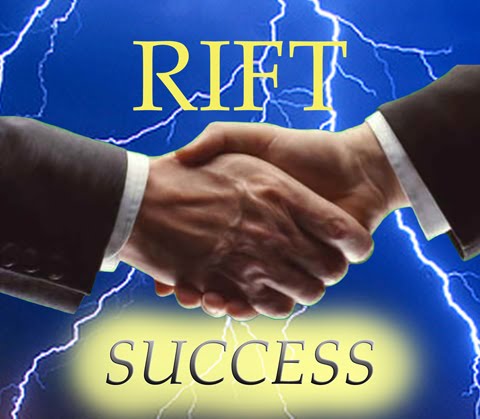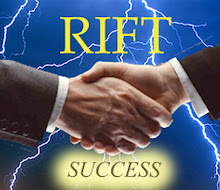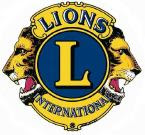Original Post By: Sharad Shinde-Patil
Director T &D at The First-Smile Foundation and Founder of "Trainers meet Trainers" Forum-Pune, Bangalore & Delhi
Who am I?
Standing in front of the mirror I saw an image. The lines of age showed but somehow I never felt them. It was as though this person in front was someone else. Someone even I couldn’t recognize as I had never spent so much time in front of the mirror. The first thoughts that came to mind were from the children’s books, “Mirror, mirror on the wall……….” and in my mind thoughts wandered off.
I was in Delhi recently and the purpose of my visit had been exclusively to meet people who were connected to me on linkedin and create a new bonding. The first reaction of many was that I had come for some program and so I was meeting people. Unfortunately it wasn’t so and once again here I learned as to how we see others in exactly the way we are. I came, I saw and boy was I overwhelmed? Interacting gave me new perspectives and an understanding that I would probably never have realized. People in a particular fraternity (training & Development) are so into themselves that I wonder if they do take the time off to look into the mirror. In my talks I have always prophesied that if there is one single factor that enhances growth it is meeting people. World over it is a known fact that networking is the single factor that creates business growth and as I always say, Self Growth.
Knowing yourself is crucial. There is the finite and there is the infinite. So who are you? It is you that is so important as YOU are the finite. Everything else is infinite. Once you recognize this and understand it, you will realize the new you. The, “YOU”, that can be created through your own creativity, innovation, idealism, beliefs and a host of other infinite thoughts. It is these thoughts that make or break you. So before you come to any conclusions look into the mirror and see what you notice. That is the real you.
http://www.linkedin.com/groupAnswers?viewQuestionAndAnswers=&discussionID=10091313&gid=3761&commentID=9571963&goback=%2Ehom&trk=NUS_DIG_DISC_Q-ucg_mr#commentID_9571963
Monday, December 21, 2009
Tuesday, December 15, 2009
Junior Sanchez 2
Check out this SlideShare Presentation:
Junior Sanchez 2
View more presentations from Junior Sanchez.
Friday, December 11, 2009
Factoring Facts
Q: What is factoring? How does it work?
A: Factoring is the purchase of accounts receivablefor immediate cash. Once you have delivered a product or performed a service for a creditworthy corporation or institution, contact us prior to sending your invoice to your customer. We will confirm with your customer that the work has been completed, or the goods delivered, and accepted, we will advance you up to 75%of the face value of the invoice amount. When your customer pays us, you will receive the balance less our discount.
Q: Do I need accounts receivable financing?
A: YES….if you are a new business. YES…if you are a business that can’t get traditional financing, such as a small or medium size business or a minority or woman owned business. Yes…if you need additional operating capital Yes…if you are growth-oriented. YES…if you want to solve your cash flow problems.
Q: How do I qualify?
A: We base our credit decision on the strength of your customers, not you. It’s easy to qualify if you meet the following criteria: Your customer must be a creditworthy business. Your invoice must be a valid one for goods sold and delivered, work performed, or services rendered — to your customer’s satisfaction. We will verify each invoice with your customer.
Q: What does it cost?
A: The discount fee starts at 3-4% and is determined by the number of days that elapse from the day we advance funds to you until the day we are paid back by your customer. And, we earn our fee only after we have collected payment on an invoice — not before. Additionally we charge a $500 processing fee and a deposit of $250 which is used to offset the costs of running lien and judgment searches, preparing legal documents, and running credit information on your customers.
Q: How will I know which invoices are paid and which were not?
A: You will have your own account executive at our office, whom you can call at any time for updated information. Just request an “Aging Schedule” which will show you which invoices have been paid and which remain open.
Q: How fast can I get money?
A: In many states it takes as little as a few days for us to do our due diligence to get on-line. Once on-line, we can fund your invoices within 24 hours (once we receive verification of your invoices).
Q: How do I get started?
A: In order to get on-line, submit your Accounts Receivable Aging Schedule as well as a customer list. Once we analyze your receivables and express an interest in proceeding with your funding, we will issue a proposal and list of documents we need to start the due diligence process. It’s that simple!
A: Factoring is the purchase of accounts receivablefor immediate cash. Once you have delivered a product or performed a service for a creditworthy corporation or institution, contact us prior to sending your invoice to your customer. We will confirm with your customer that the work has been completed, or the goods delivered, and accepted, we will advance you up to 75%of the face value of the invoice amount. When your customer pays us, you will receive the balance less our discount.
Q: Do I need accounts receivable financing?
A: YES….if you are a new business. YES…if you are a business that can’t get traditional financing, such as a small or medium size business or a minority or woman owned business. Yes…if you need additional operating capital Yes…if you are growth-oriented. YES…if you want to solve your cash flow problems.
Q: How do I qualify?
A: We base our credit decision on the strength of your customers, not you. It’s easy to qualify if you meet the following criteria: Your customer must be a creditworthy business. Your invoice must be a valid one for goods sold and delivered, work performed, or services rendered — to your customer’s satisfaction. We will verify each invoice with your customer.
Q: What does it cost?
A: The discount fee starts at 3-4% and is determined by the number of days that elapse from the day we advance funds to you until the day we are paid back by your customer. And, we earn our fee only after we have collected payment on an invoice — not before. Additionally we charge a $500 processing fee and a deposit of $250 which is used to offset the costs of running lien and judgment searches, preparing legal documents, and running credit information on your customers.
Q: How will I know which invoices are paid and which were not?
A: You will have your own account executive at our office, whom you can call at any time for updated information. Just request an “Aging Schedule” which will show you which invoices have been paid and which remain open.
Q: How fast can I get money?
A: In many states it takes as little as a few days for us to do our due diligence to get on-line. Once on-line, we can fund your invoices within 24 hours (once we receive verification of your invoices).
Q: How do I get started?
A: In order to get on-line, submit your Accounts Receivable Aging Schedule as well as a customer list. Once we analyze your receivables and express an interest in proceeding with your funding, we will issue a proposal and list of documents we need to start the due diligence process. It’s that simple!
Recession Seen Lasting 20 Years - I Say Take The Quantum Leap and Let Quantum Funding Show You a Brighter Future
The recession could last for a whopping 20 years, John Rosevear of the Motley Fool writes.
Rosevear points out that on Dec. 29, 1989, the Nikkei 225, Japan’s benchmark stock index, reached a high of 38,957. However, on December 3, 2009, it closed at 9,977.67, a startling 74% decrease.
He predicts that the US will follow the same fate because of “excessive asset expansion,” weak corporate governance and the bank crisis.
“The Japanese government’s response to the crisis was very different from that of the United States. In a nutshell, it was several years before its government did much of anything, and what it finally did do was arguably too little, too late. But at the same time, it’s hard to argue with this: In the past decade, the S&P 500 index is down more than 20%. It’s a disturbing parallel to ponder, especially for those of us worried about our retirement portfolios,” he said.
With the unemployment rate at 10 percent, some experts are predicting the recession could end by the middle of next year, Bloomberg reported.
Harvard University professor Jeffrey Frankel, a member of the National Bureau of Economic Research’s Business Cycle Dating Committee, said the recession could end by the middle of 2010.
“Mid-summer remains the best candidate for ultimate dating of the trough, probably July, or possibly June,” he said.
Robert Hall, who heads the National Bureau of Economic Research’s Business Cycle Dating Committee, said the economy could be affected by another downturn.
He said the current estimates “presume that there won’t be any new adverse shock. “There are some horror-story scenarios that could stand in the way, so I don’t see the point of forecasting. We just wait until we are ready.”
© 2009 Newsmax. All rights reserved.
Rosevear points out that on Dec. 29, 1989, the Nikkei 225, Japan’s benchmark stock index, reached a high of 38,957. However, on December 3, 2009, it closed at 9,977.67, a startling 74% decrease.
He predicts that the US will follow the same fate because of “excessive asset expansion,” weak corporate governance and the bank crisis.
“The Japanese government’s response to the crisis was very different from that of the United States. In a nutshell, it was several years before its government did much of anything, and what it finally did do was arguably too little, too late. But at the same time, it’s hard to argue with this: In the past decade, the S&P 500 index is down more than 20%. It’s a disturbing parallel to ponder, especially for those of us worried about our retirement portfolios,” he said.
With the unemployment rate at 10 percent, some experts are predicting the recession could end by the middle of next year, Bloomberg reported.
Harvard University professor Jeffrey Frankel, a member of the National Bureau of Economic Research’s Business Cycle Dating Committee, said the recession could end by the middle of 2010.
“Mid-summer remains the best candidate for ultimate dating of the trough, probably July, or possibly June,” he said.
Robert Hall, who heads the National Bureau of Economic Research’s Business Cycle Dating Committee, said the economy could be affected by another downturn.
He said the current estimates “presume that there won’t be any new adverse shock. “There are some horror-story scenarios that could stand in the way, so I don’t see the point of forecasting. We just wait until we are ready.”
© 2009 Newsmax. All rights reserved.
Labels:
Contact Me
Subscribe to:
Comments (Atom)
Search This Blog
Labels
- 360 (1)
- Amazon (1)
- blue iguana (1)
- book (1)
- change (2)
- Contact Me (2)
- entrepreneur strategies (1)
- entrepreneurs (1)
- establish your reputation (1)
- fit4change (1)
- Green Evironment (1)
- HR industry (1)
- Human Resources (2)
- Ingun Bol (1)
- interview (1)
- Jaxi West (2)
- jobs (1)
- John Bates (1)
- junior sanchez (5)
- just starting a business (1)
- lion (1)
- Lions Clubs International (1)
- magazine (1)
- NYS Prisoner Justice Conference (1)
- NYS Prisoner Justice Network (1)
- professional business people (1)
- recruiting (1)
- rift (1)
- RIFT SUCCESS (7)
- RIFT. R.I.F.T. (2)
- sales (1)
- save money (1)
- save the earth (1)
- secrets (1)
- Service Based Business (1)
- software (1)
- staffing (1)
- Tony Durso (1)
- urgent (2)

















